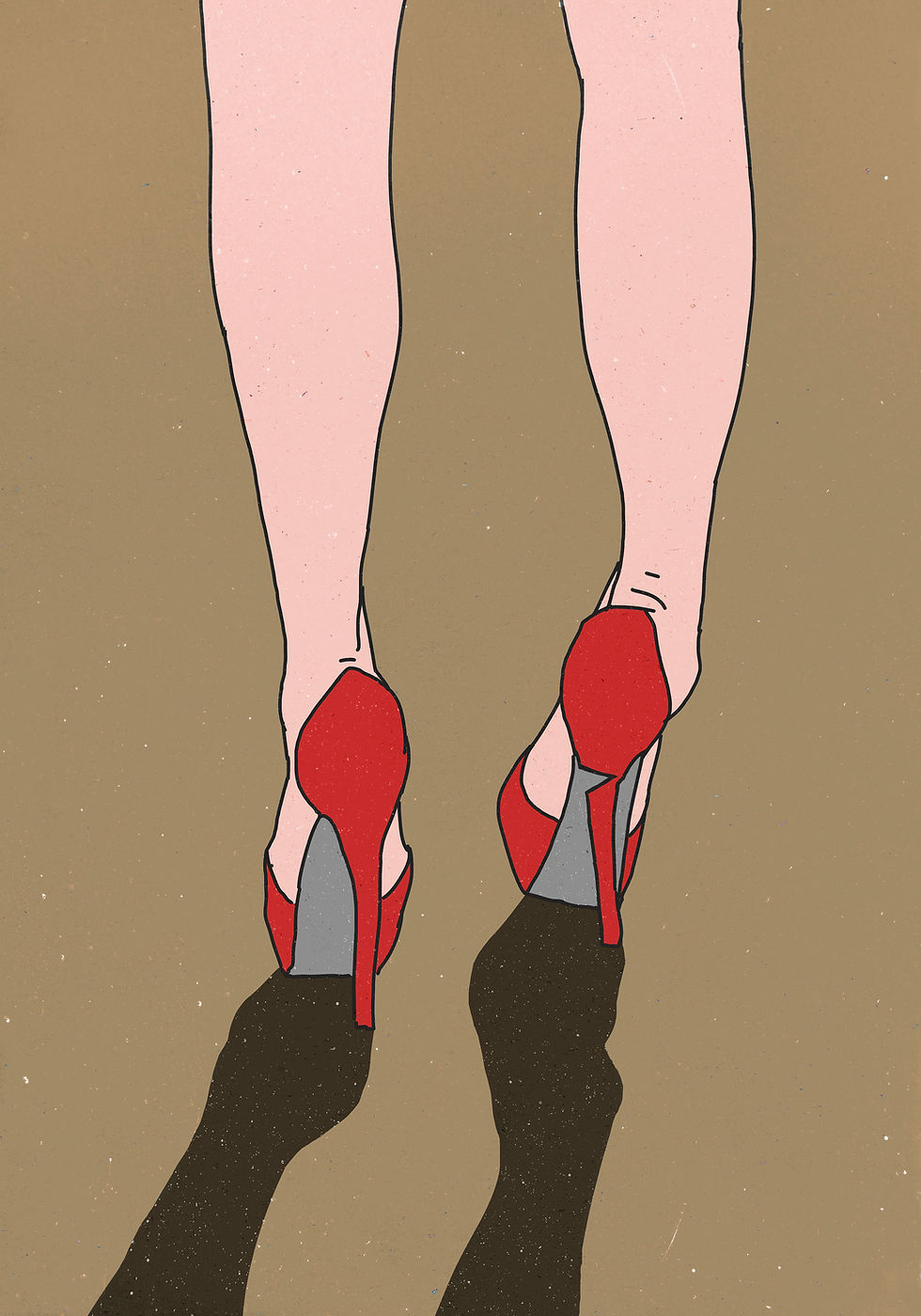The Lesson Of The Oracle

(Image Courtesy of the British Museum. Image depicts Orestes Apollo at Delphi on a Greek-Vase painting)
In Ancient Greece, there was the legend of the oracle. The oracle was the person who Apollo blessed with the gift of prophecy. The oracle would give pieces of the future when she stood under a vat of smoke. Today, some researchers believe that the oracle's divine inspiration was a hallucinogenic trip deviated from the volcanic fumes she inhaled. Yet everyone can attest how the Oracle's words still had a seed of truth that brought fear and admiration to Ancient Greece.

(Image courtesy of Shutterstock)
As my time in school draws to an end, I am about to start my odyssey. Unlike Odysseus, who knew where he wanted to go, I have no idea where I will be. The Sara Bareilles' song Unchartered is on a constant loop as I assess where what, and how I will call somewhere my new home soon. In response to this great mystery, I have asked communication professionals to optimize my grad school experiences in the working world. Like Odysseus, I have some great patrons who want me to succeed. The Athena of UNC and The Hermes of Public Relations have provided me with clarity and aid during this process. But today, I encountered my first advertising oracle.
(Video courtesy of Sara Bareilles performing Uncharted live @ The Warfield, San Francisco. (C) 2011 Sony Music Entertainment. Video was found on https://www.youtube.com/watch?v=MeO1OJGFTlg )
An Advertising Oracle is a communication professional with extraordinary foresight. It's the person who sees a story from the pieces of the future. This Advertising Oracle works for a Prometheus-like company that has changed how we see the world. This Oracle's skills include:
Creating and maintaining brand equity.
Adapting communication to advancing technology.
Translating professional nuances with master precision.

(Image courtesy of Holger Woizick. Image found on Unsplash. Image depicts The Prometheus (1934) bronze sculpture by Paul Manship found in Rockefeller Plaza in New York City.)
The Oracle and I meant twice for thirty minutes each time. The first time I met the Oracle, I asked my standard questions about the everyday trials and triumphs of being an Oracle. After answering them, The Oracle asked why I didn't ask about the challenges she faces. I politely responded that I did not know The Oracle and would not go to a company's pressure points without knowing the person before. The Oracle liked this answer to schedule a follow-up call.

(Image courtesy of Shutterstock)
The follow-up call was where The Oracle's words indeed became confusing. As I chatted with the Oracle, I did not understand how the Oracle's thought process. The Oracle recommended that I assess what I want to accomplish and have actual measurements of success before the job hunt. The Oracle thought I should go on an international odyssey to empower myself. As the Oracle was saying fancy terms without defining them, I felt overwhelmed. The Oracle was practicing Thin Slicing. Malcolm Gladwell describes Thin Slicing in his book Blink as the process where a person uses their adaptive subconscious to make decisions about others. I recognized that I was thin sliced before my eyes.

(Image courtesy of Back Bay Books, Little, Brown. Image depicts the cover of Blink: The Power of Thinking Without Thinking (2005) by Malcom Gladwell)
The Oracle did not comprehend the adversity I overcame to be where I am today. I doubt The Oracle that the pen was a heavier burden than the sword to carry for the longest time. That writing would not turn me into a Greek Heroine, rather a nameless victim of the Grammar Gorgon or Syntax Scylla. The Oracle did not see the invisible scars from the constant red ink corrections or suggestions that determined how I felt about myself. At the end of the call, I told the Oracle that I needed time to reflect and focus on my efforts to the bigger picture to heed today's advice.

(Image courtesy of the J. Paul Getty Museum. Image depicts Vincenzo Gemito (Italian, 1852 - 1929)
Medusa, 1911, Partially gilt silver 23.5 cm (9 1/4 in.), 86.SE.528 found in The J. Paul Getty Museum, Los Angeles)
After the phone call, I was vulnerable. I felt that someone who barely knew me had found my Achilles heel. But, I realized something after taking time to let those words marinate. I can make The Oracle's words as fact or fiction. It's up to me to make that executive decision. The irony of Greek Mythology is that freedom of choice is left not to mortals but the divine. I am happy that I am not living in Greek Mythology. I know that I have the freedom to make a person's words have value.

(Image courtesy of Media from Wix)
Many people in their twenties take the words said by professional and personal role models as scientific law. I am sorry to tell you this. Your Isaac Newton can be wrong. If Isaac Newton says that you needed work on something when you were seven, that is true for when you were seven, not twenty-seven. A person's growth changes day by day. Nothing is set in stone. The lesson of The Oracle is this; you give people in your life the power to make their words feathers or knives.

(Image courtesy of Shutterstock)

Kommentare